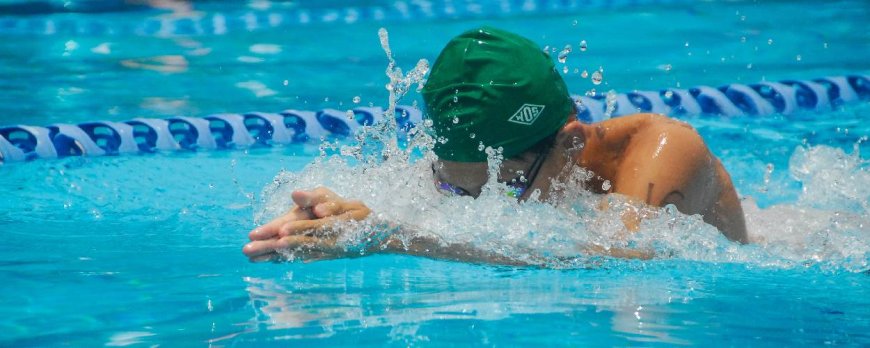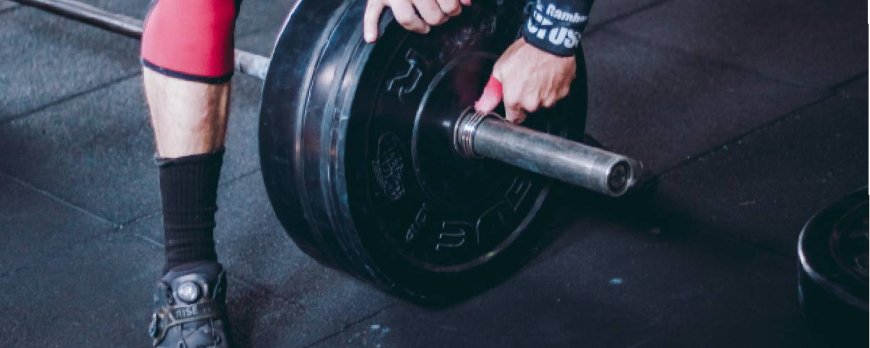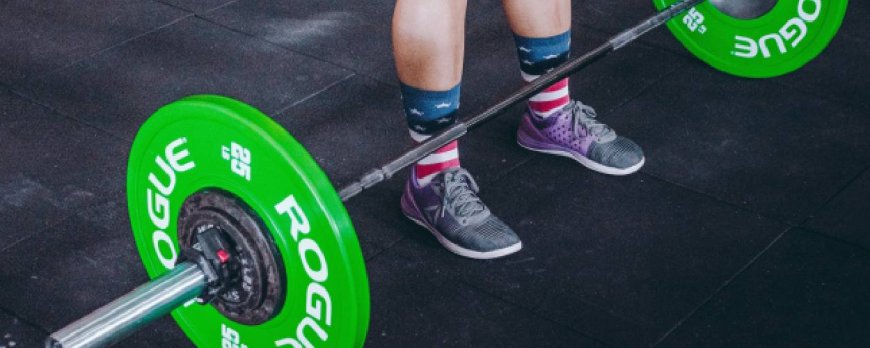What is skill related fitness?
Explore 'What is skill related fitness?' and how it impacts athletic performance. Enhance agility, balance, and coordination for a healthier lifestyle.

What is Skill Related Fitness?
When most people think of physical fitness, they typically think of activities like running, lifting weights, or doing yoga. But there's another, lesser-known type of fitness that is equally important, especially for athletes: skill related fitness.
Skill related fitness refers to a set of physical attributes that are important for success in sports and other physical activities. These attributes include agility, balance, coordination, power, reaction time, and speed. While all of these components contribute to overall physical fitness, they are especially important for athletes who need to be able to move quickly and efficiently in their sport.
In this article, we'll explore each of these components in greater detail and explain how you can improve them to become a better athlete. Whether you're a serious competitor or just someone looking to improve your overall fitness, understanding skill related fitness can help you reach your goals and perform at your best.
Key Takeaways:
- Skill related fitness is a set of physical attributes that are crucial for success in sports and other physical activities.
- The components of skill related fitness include agility, balance, coordination, power, reaction time, and speed.
- Athletes need to develop these components in order to move quickly and efficiently in their sport.
Components of Skill Related Fitness
Skill related fitness is composed of various components that are essential to athletic performance. These components are agility, balance, coordination, power, reaction time, and speed. Each component plays a crucial role in enabling athletes to perform at their best, and a deficiency in any of these areas can hinder overall performance. By focusing on improving these components through targeted exercises and training techniques, athletes can enhance their skill related fitness and excel in their chosen sport or activity.
Agility
Agility is the ability to change direction quickly and precisely. It is essential for athletes who need to move quickly and change direction frequently, such as basketball players, football players, and tennis players. Exercises that can improve agility include ladder drills, cone drills, and plyometrics.
Balance
Balance is the ability to maintain stability and control of the body during movement. It is crucial for athletes to have good balance, as it enables them to maintain control of their movements, avoid injury, and perform complex maneuvers. Balance exercises include single-leg balance drills, balance board exercises, and yoga poses.
Coordination
Coordination is the ability to use different parts of the body together smoothly and efficiently. It is vital for athletes who need to perform complex movements, such as gymnasts and figure skaters. Coordination can be enhanced through exercises such as juggling, ball handling drills, and hand-eye coordination exercises.
Power
Power is the ability to generate force quickly and explosively. It is essential for athletes who need to perform explosive movements, such as sprinters and jumpers. Power can be improved through exercises such as plyometrics, Olympic lifts, and medicine ball throws.
Reaction Time
Reaction time is the ability to respond quickly to a stimulus. It is crucial for athletes who need to react to changing situations quickly, such as baseball players and martial artists. Reaction time can be improved through exercises such as catching drills, agility drills, and quick decision-making exercises.
Speed
Speed is the ability to move quickly from one point to another. It is vital for athletes who need to cover ground quickly, such as sprinters, soccer players, and football players. Exercises that can improve speed include sprint training, plyometrics, and resistance band drills.
By understanding and improving these components of skill related fitness, athletes can enhance their overall physical fitness and excel in their chosen sport or activity.

Agility
Agility is an essential component of skill related fitness that focuses on an athlete's ability to change direction quickly and efficiently. It requires the integration of physical and mental aspects of performance, including balance, coordination, and reaction time. Agility is crucial for athletes in sports that require rapid changes in direction, such as basketball, soccer, and tennis.
There are numerous exercises and training techniques designed to improve agility, including ladder drills, cone drills, and plyometric exercises. These drills are specifically designed to challenge an athlete's ability to change direction quickly and efficiently, improve coordination and balance, and enhance reaction time. Incorporating these exercises into a training regimen can significantly improve an athlete's agility, which can lead to improved performance in their chosen sport or activity.
Balance in Skill Related Fitness
Balance is a key component of skill related fitness that plays a crucial role in athletic performance. It refers to the ability to maintain control and stability of the body's center of gravity. Maintaining balance is important in many sports, including gymnastics, snowboarding, and martial arts, among others.
Good balance helps athletes maintain proper body alignment, which is essential for injury prevention and optimal performance. It also enables athletes to move quickly and change direction smoothly.
There are different types of balance that athletes can work on improving, including static, dynamic, and reactive balance. Static balance refers to maintaining balance while standing still, while dynamic balance involves maintaining balance while moving. Reactive balance is the ability to maintain balance in response to sudden changes in the environment, such as an opponent's movement.
To improve balance, athletes can incorporate specific exercises into their training routine. Some examples of exercises that can improve balance include single-leg exercises such as lunges and squats, as well as unstable surface training, such as using a balance board or stability ball.
"Balance is not something you find, it's something you create." - Jana Kingsford
Conclusion
Developing balance is essential for athletes looking to enhance their skill related fitness. By incorporating exercises that focus on improving balance, athletes can improve their ability to maintain proper body alignment, move quickly, and change direction smoothly. With consistent training and practice, athletes can achieve better balance, thus improving their overall athletic performance.
Coordination
Coordination is a fundamental component of skill related fitness. It refers to an athlete's ability to synchronize multiple movements and motor skills to perform a specific task efficiently. Coordination requires the integration of multiple senses, including vision, hearing, and proprioception.
Athletes with good coordination can precisely control their movements and perform complex tasks with ease. For example, a basketball player with excellent coordination can dribble the ball while avoiding defenders and simultaneously scan the court for open teammates.
To improve coordination, athletes can perform specific exercises that challenge the neuromuscular system. These exercises can include balance training, reaction drills, and activities that require the use of multiple limbs.
Athletes can also enhance their coordination abilities by practicing their sport-specific skills in different environments. For example, a soccer player can train to improve their coordination by practicing dribbling skills on different surfaces, such as sand or grass.
Coordination is crucial in many sports, including gymnastics, figure skating, and tennis, to name a few. By improving their coordination, athletes can enhance their overall performance and reduce the risk of injuries associated with poor coordination.

Power: The Key to Athletic Success
When it comes to athletic performance, power is a crucial component of skill related fitness. Power refers to the ability to exert maximum force in a short period of time, and it is essential for explosive movements such as jumping, sprinting, and throwing.
Athletes who possess greater power have a significant advantage over their counterparts, as it allows them to perform at a higher level and achieve greater success.
There are various exercises and training methods that can help athletes develop their power. Resistance training, plyometrics, and sprint training are all effective ways to increase power output.
Additionally, proper nutrition and rest are essential components of power development. Adequate protein intake and sufficient sleep can promote muscle growth and recovery, leading to greater power output.
It is important to note that power development should be tailored to the specific needs and goals of the athlete. Different sports and activities require different types and levels of power, and a customized training plan can help athletes maximize their performance.
By prioritizing power development in their training, athletes can enhance their overall skill related fitness and achieve greater success in their chosen sport or activity.
Reaction Time: Why It Matters for Athletic Performance
Reaction time is one of the most critical components of skill related fitness. It refers to the amount of time it takes for an athlete to react to a stimulus, such as a ball coming towards them or an opponent's movement on the field.
Having a fast reaction time is crucial for athletes as it can be the difference between scoring a goal or missing an opportunity. In addition, a speedy reaction time can be essential for avoiding collisions and injuries in contact sports.
Thankfully, reaction time can be improved through targeted exercises and training techniques. One effective method is to practice drills that involve quick decision-making and reaction to visual or auditory cues. Another useful exercise is incorporating reaction time training tools, such as reaction balls or lights, into workouts.
It's important to note that different sports require varying levels of reaction time. For instance, a tennis player needs to have faster reaction time than a long-distance runner. Therefore, athletes should tailor their training to their specific sport and prioritize exercises that will enhance their individual reaction time needs.
Takeaway Message:
Reaction time is a vital component of skill related fitness, and improving it can benefit athletes in a variety of sports. Through targeted exercises and training techniques, athletes can enhance their reaction time and boost their overall athletic performance.
Speed: The Vital Component for Athletic Performance
Speed is a fundamental aspect of skill related fitness and plays a crucial role in athletic performance. It allows athletes to outpace their opponents, reach the ball first, and break away from defenders. Improving speed can give athletes an edge over their competitors, making it an essential component for success in many sports and activities.
There are various training methods that athletes can use to increase their speed. One effective way is through interval training, alternating between periods of high-intensity sprinting and active recovery. Another is through resistance training, which involves using weights or other forms of resistance to build strength and power, ultimately leading to increased speed.
Speed can benefit athletes in many ways. It can improve their overall performance in their chosen sport or activity, increase their reaction time, and help prevent injury by allowing them to move quickly and efficiently. As a result, coaches and trainers often prioritize speed development in their training programs for athletes.
However, it is important to note that improving speed is not just about running faster. It also involves improving technique, such as stride length and frequency, as well as developing proper body mechanics and posture.
Overall, speed is a vital component of skill related fitness and can greatly enhance an athlete's performance in their chosen sport or activity. By incorporating speed training into their regimen and focusing on proper technique and mechanics, athletes can improve their speed and gain a competitive edge.
Types of Skill Related Fitness
Skill related fitness can be broken down into different types depending on the specific sport or activity. Each type of skill related fitness requires a unique set of abilities and training methods to optimize performance. Understanding the different types can help athletes tailor their training towards improving specific skills.
1. Reactive Ability
Reactive ability involves reacting quickly and accurately to external stimuli, such as an opponent's movement. This type of skill is crucial in sports that require quick decision making and adaptability, such as soccer or basketball. Training for reactive ability involves drills and exercises that improve reaction time and decision making under pressure.
2. Balance and Coordination
Balance and coordination are essential skills in sports that require stability and body control, such as gymnastics or figure skating. Athletes need to maintain their balance while executing complex movements with precision and control. Training for balance and coordination involves exercises such as balance drills, bodyweight movements, and coordination drills.
3. Agility and Speed
Agility and speed are important in sports that require sudden changes of direction and quick sprints, such as basketball or football. Athletes with good agility and speed can evade defenders and make quick plays with ease. Training for agility and speed involves exercises that improve footwork, explosiveness, and quick reflexes.
4. Power and Strength
Power and strength are crucial in sports that require explosive movements, such as weightlifting or sprinting. Athletes with good power and strength can accelerate quickly and generate maximum force, giving them a competitive advantage over their opponents. Training for power and strength involves exercises such as plyometrics, weightlifting, and resistance training.
Incorporating a variety of these different types of skill related fitness into your training can help you become a well-rounded athlete with optimized performance. Remember to consult with a professional trainer to develop a training program that is tailored to your sport and individual needs.

Conclusion
In summary, skill related fitness is a crucial component of overall physical fitness, contributing significantly to athletic performance. It comprises several components, including agility, balance, coordination, power, reaction time, and speed, all of which play a vital role in sports and other activities. Improving agility can increase an athlete's ability to change direction quickly, while balance is essential for stability during movements. Coordination helps athletes to execute complex movements efficiently, while power enables them to produce maximum force in a short time. Reaction time improves an athlete's reflexes, and improved speed can give athletes an edge over their competitors. By tailoring training techniques to specific components of skill related fitness, athletes can enhance their abilities in their chosen sport or activity. Whether you are a seasoned athlete or a beginner looking to improve your fitness, incorporating skill related fitness into your training regimen can have a significant impact on your overall performance. So, make sure to focus on developing your skill related fitness to become a better athlete and improve your overall health and well-being.
FAQ
What is skill related fitness?
Skill related fitness refers to a set of physical attributes that are essential for optimal athletic performance. These attributes include agility, balance, coordination, power, reaction time, and speed. Skill related fitness is closely related to overall physical fitness and plays a crucial role in various sports and activities.
What are the components of skill related fitness?
The components of skill related fitness include agility, balance, coordination, power, reaction time, and speed. Each component contributes to an athlete's overall athletic performance and can be improved through targeted exercises and training techniques.
Why is agility important in skill related fitness?
Agility is a vital component of skill related fitness as it allows athletes to quickly and efficiently change direction, accelerate, and decelerate. Improving agility through specific exercises and drills enhances an athlete's ability to react swiftly and adapt to the demands of their sport, ultimately improving performance.
What is the role of balance in skill related fitness?
Balance is essential in skill related fitness as it helps athletes maintain stability and control over their body movements. It is crucial for activities that require precise control, such as gymnastics or martial arts. By targeting balance through specific exercises, athletes can improve their coordination and overall performance.
Why is coordination important in skill related fitness?
Coordination is vital in skill related fitness as it allows athletes to effectively integrate movements and actions in a harmonious manner. Good coordination enhances an athlete's ability to perform complex movements and skills with accuracy and efficiency, leading to improved performance in their sport.
What is the role of power in skill related fitness?
Power plays a significant role in skill related fitness as it involves the ability to exert maximum force in the shortest amount of time. Power is crucial for explosive movements, such as sprinting or jumping. By incorporating power-focused training methods, athletes can enhance their ability to generate force and improve their overall athletic performance.
Why is reaction time important in skill related fitness?
Reaction time is crucial in skill related fitness as it determines how quickly an athlete can respond to a stimulus or initiate a specific movement. Having a fast reaction time can give athletes a competitive advantage in sports that require quick decision-making and reflexes. By practicing specific exercises and techniques, athletes can improve their reaction time and enhance their overall performance.
Why is speed important in skill related fitness?
Speed is a vital component of skill related fitness as it allows athletes to perform movements or actions at a high velocity. Improved speed enables athletes to cover distances quickly, react faster, and execute skills more efficiently. By incorporating speed-focused training methods, athletes can enhance their overall performance and gain a competitive edge.
What are the different types of skill related fitness?
The types of skill related fitness can vary depending on the specific sport or activity. Some examples include agility-specific fitness, balance-specific fitness, coordination-specific fitness, power-specific fitness, reaction time-specific fitness, and speed-specific fitness. Athletes can tailor their training to improve specific skills based on the requirements of their chosen sport or activity.
Can skill related fitness help improve overall physical fitness?
Yes, skill related fitness is closely related to overall physical fitness. By targeting and improving the various components of skill related fitness, athletes can enhance their overall physical abilities, such as strength, endurance, and flexibility. Improving skill related fitness can also contribute to injury prevention and overall well-being.
How can I enhance my skill related fitness?
Enhancing skill related fitness involves incorporating targeted exercises and training techniques into your workout routine. Focus on activities that specifically target agility, balance, coordination, power, reaction time, and speed. Additionally, working with a qualified trainer or coach who specializes in skill related fitness can provide personalized guidance and help you achieve your athletic goals.


































































































































